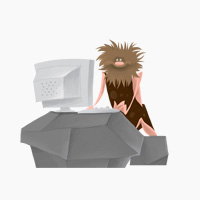On Keto Diet Do You Count Calories

This is ultimately going to be a post about calories and keto, but start by thinking about your computer for a second. You probably don't know exactly how all the circuits and electronic parts of your computer work, but you can still turn it on and use it just fine. You don't need a degree in electrical engineering just to send an email. You can just use the buttons and windows on the screen to interact with the computer and the motherboard will take care of itself.
Energy balance in the human body (the "calories in/calories out" equation) is like all the electronic  stuff going on inside a computer. It's "true" or "real" or however you like to put it, but it's way too complicated for most of us to understand in detail or fully control.
stuff going on inside a computer. It's "true" or "real" or however you like to put it, but it's way too complicated for most of us to understand in detail or fully control.
For example, different people extract calories from their food more or less efficiently, so the same muffin might give one person 200 calories in but another person 225. Nutrition labels can't take that into account, so the calorie counts are slightly off in a slightly different way for each person. To really understand how "calories in/calories out" works under the hood, you'd need to analyze all kinds of biological processes that are at least as complex as the inside of your computer. Probably more.
Of course, nobody actually does that – for one thing, most of us have way too much to do, and not everyone is even interested. Instead, we use different diets. Diets are like the user interface of the computer. They give you a more understandable way to do what you want (lose weight or send an email), without worrying about everything under the hood.
Even pure calorie-counting typically works like that. Instead of a deep dive into your own energy metabolism and digestive system, just plug your height, weight, age, and sex into some calculator and get an extremely rough approximation of how many calories to eat, based on a bunch of assumptions that the calculator makes. "Eat 1500 calories" is a simple (not easy! But simple!) task.
Weight Watchers is another type of diet that uses a human-friendly shortcut (the points). Very low-fat diets use a different set of rules to accomplish the same thing. Keto is just another example of a user interface that simplifies the process of operating your own body and managing your own energy balance.
So then the question becomes: what kind of diet is most user-friendly? If calorie-counting is just a shortcut like all the other shortcuts, then it's not any more scientific or pure than anything else – it's just one among many potential choices. If all of them are just ways to simplify the process of controlling your own energy balance, which kind of diet strategy is the easiest and least unpleasant to use?
Calorie-counting is a bad diet strategy.

Kids, if you don't remember Windows ME, ask a caveman over 30.
The problem with calorie-counting is that – even in simplified, internet-calculator form – it still requires a lot of cognitive effort. Even if they can figure out roughly the correct number of calories to eat for their goals (and that's a big if), most people can't count how much they eat with any degree of accuracy. Also, for most people, calorie-counting requires being hungry a lot of the time, which is very unpleasant. It's just not reasonable to expect most people to count/restrict calories as a primary weight loss strategy. It's a bad UI. It's the Windows ME of diets.
That's why keto doesn't generally require or encourage calorie-counting – so if you're skimming for the short answer, here it is: no, most people don't need to count calories to lose weight on keto, and in fact, most people probably shouldn't. It's not because calories don't matter, and it's not because something about high-fat diets transcends the laws of thermodynamics and lets you lose weight while eating more food than your body needs. It's because keto diets accomplish the same goal (managing energy balance) in less painful ways.
It's not necessary to count calories if you're eating keto, because ketogenic diets have other features that let people control their own energy balance with minimum pain and effort. For example:
- Keto takes out all the junk food specifically engineered to make you keep mindlessly eating it, even when you aren't hungry (potato chips, candy, pretzels, etc.).
- Keto prevents blood sugar highs and crashes, so there's no "need" for a snack every few hours to prevent blood sugar lows.
- Keto satisfies hunger very well – most people find fat- and protein-rich foods to be really filling, and they don't tend to gorge themselves on liverwurst or chicken thighs.

Delicious…but not so delicious that you'd sit in front of the TV and eat a whole package without noticing!
- When practiced as a weight-loss diet, keto is generally pretty high in protein, which may help preserve metabolic rate even after weight loss.
- A relatively health-conscious keto or low-carb diet helps resolve inflammation and other underlying factors that contribute to cravings and fat cell dysfunction.
- Keto does all this via a very simple set of understandable rules that you can follow intuitively once you get used to them.
Most people who eat keto food eat only to hunger – and without all the lab-engineered junk food, hunger is a much better indication of what your body actually needs. The "magic" of ketogenic diets is the way they get people to eat less without unrealistic requirements like counting every calorie or being hungry most of the time.
Just to back this up with something besides anecdotal success stories, studies generally support the finding that if people are allowed to eat as much as they want without counting calories, they naturally eat less on a low-carb diet than a high-carb diet. They often spontaneously lose weight, even without trying, because they're eating so much less. As a user interface for managing your own internal hardware, keto works really well without the need for calorie-counting.
So – do you need to count calories on keto?
Most people who come in overweight and want to lose weight shouldn't need to count calories.
If you aren't losing weight, try counting for a couple days to see if you're doing anything totally crazy like eating 1,500 calories of keto trail mix every day as a "snack" on top of your normal meals.
If you want to gain weight on keto and you can't, try counting calories to make sure you're getting enough.
But again, for most people, calorie-counting shouldn't be necessary, because keto accomplishes the calorie-reduction magic without making you explicitly count them out. That's one of the great parts about the diet – enjoy it!
Do you count calories on keto? Why or why not? Let us know on Facebook or Twitter!
On Keto Diet Do You Count Calories
Source: https://paleoleap.com/do-i-need-to-count-calories-to-lose-weight-on-keto/